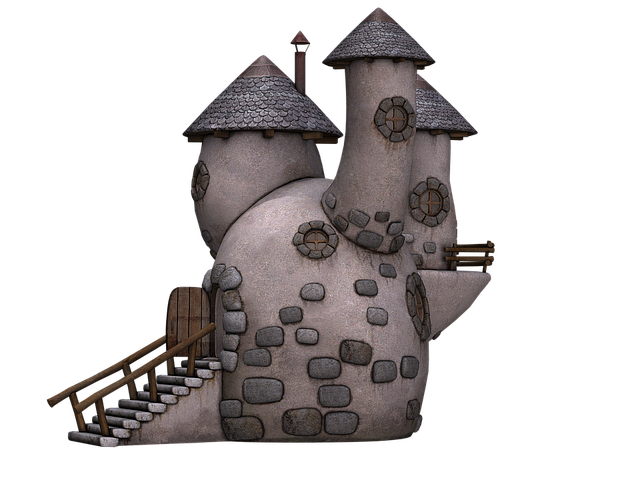The real estate sector is undergoing a significant transformation with property managers evolving into tech-savvy professionals adept at leveraging technology for enhanced house sitting services and remote monitoring of properties. This shift is crucial for catering to modern tenants' expectations of seamless communication and efficient asset management. Property managers now utilize sophisticated software to manage real-time maintenance issues, tenant interactions, and financial oversight, ensuring properties are maintained optimally and tenant satisfaction remains high. Advanced tools enable them to provide comprehensive house sitting services, including routine property inspections and emergency response protocols, which are critical for maintaining unoccupied properties' integrity. In urban, suburban, or rural settings, these experts handle the complex tasks of maintenance coordination, tenant communication, and compliance adherence, acting as a steadfast presence that safeguards properties and preserves their value. Their role is pivotal in upholding property standards, financial interests, and providing tenants with a stable living environment. With expertise in house sitting and the full spectrum of property management duties, these professionals ensure that residential and commercial properties operate successfully and profitably.
In an ever-shifting real estate landscape, the role of professional property managers has become increasingly pivotal. With the intricacies of market dynamics and the complexities of property maintenance, there’s a growing need for expertise in navigating these challenges effectively. This article delves into the evolving functions of professional property managers, underscoring their importance across various markets, while also exploring the strategic integration of house sitting within property management practices. Furthermore, we will examine how technological advancements are reshaping the industry, offering enhanced oversight and security for properties under management. Join us as we uncover the critical intersection of property management and house sitting, and how these combined efforts contribute to maximizing investment returns and ensuring peace of mind for property owners.
- The Evolving Role of Professional Property Managers in Modern Real Estate
- – The importance of professional property management in various markets
- – Overview of duties and responsibilities of a modern property manager
The Evolving Role of Professional Property Managers in Modern Real Estate

The landscape of real estate is undergoing significant transformations, with the role of professional property managers evolving to meet the demands of modern market dynamics. Today’s property managers are tasked with a multifaceted set of responsibilities that extend beyond traditional management duties. They are now digital stewards, adept at leveraging technology for house sitting services and remote monitoring of properties. This shift towards more sophisticated management practices is crucial in an era where tenants expect seamless communication and landlords seek efficient asset management. The integration of advanced property management software allows for real-time updates on maintenance issues, tenant correspondence, and financial oversight, ensuring that properties are well-maintained and tenant satisfaction remains high. As the industry moves forward, the expertise of professional property managers in coordinating these complex tasks becomes increasingly invaluable, setting a new standard for excellence in property care and investment returns.
Moreover, the advent of innovative platforms has enabled professional property managers to offer house sitting services that go beyond the traditional scope. These services now encompass comprehensive oversight, from routine inspections to emergency response protocols, all designed to safeguard properties and maintain their integrity. The ability to remotely manage a portfolio of properties is a testament to the adaptability and technological proficiency required in today’s real estate market. As such, property managers are not just gatekeepers but pivotal players in the ongoing success of real estate investments, ensuring that each property is managed with the utmost professionalism and care.
– The importance of professional property management in various markets

In today’s dynamic real estate market, professional property management has become increasingly crucial for both property owners and tenants alike. These professionals are adept at overseeing properties, ensuring that day-to-day responsibilities are handled efficiently, which includes everything from routine maintenance to tenant correspondence. Their expertise is invaluable in various markets, from urban centers where high-density living demands meticulous coordination, to suburban and rural areas where house sitting and property upkeep take on a different set of challenges. In cities like New York or London, where the real estate landscape is dense and competitive, professional managers facilitate smooth operations by managing tenant relations, compliance with local housing regulations, and coordinating with maintenance teams. This not only preserves the value of the property but also enhances the living experience for tenants. Similarly, in less densely populated areas, professional managers provide a reliable presence, safeguarding properties from potential issues that can arise when owners are distant or unable to be on-site. Their role is critical in maintaining the integrity and functionality of these properties, ensuring they remain well-maintained and tenant-ready at all times. Whether in a bustling cityscape or a serene countryside setting, professional property management is an indispensable service that upholds the standards and financial interests of property owners while fostering a stable and satisfactory living environment for renters.
– Overview of duties and responsibilities of a modern property manager

In the contemporary realm of real estate, professional property managers play a pivotal role in overseeing properties on behalf of owners. Their duties encompass a wide array of responsibilities that are critical for maintaining the integrity and profitability of residential and commercial properties. A key aspect of their role is house sitting, which involves monitoring the condition of vacant properties to ensure they remain secure, well-maintained, and free from damage or unauthorized access. This vigilance extends to coordinating with maintenance personnel, addressing any issues that arise promptly, and supervising repairs to uphold the property’s value. Additionally, modern property managers are adept at handling tenant relations, from screening potential tenants to managing lease agreements, rent collection, and addressing tenant concerns. They also keep abreast of market trends, enabling them to advise property owners on rental pricing strategies to maximize income and maintain high occupancy rates. Compliance with legal requirements is another critical aspect of their role, as they must stay informed about local housing laws, regulations, and landlord-tenant statutes to ensure operations adhere to all necessary guidelines.
Furthermore, effective communication and negotiation skills are essential for property managers, as they often interact with a variety of stakeholders, including tenants, service providers, and property owners. They must possess strong organizational skills to manage the day-to-day operations of multiple properties efficiently, ensuring that all tasks from routine inspections to financial reporting are executed accurately and within agreed timelines. With advancements in technology, modern property managers also utilize property management software to streamline operations, track expenses, and maintain comprehensive records of property conditions, tenant information, and financial transactions. This technological proficiency ensures that they can deliver exceptional services, from house sitting to handling complex financial tasks associated with managing real estate investments.
In today’s dynamic real estate landscape, the role of professional property managers has become increasingly significant. Their expertise is pivotal in navigating the complexities of property maintenance, tenant relations, and financial oversight. As detailed in this article, modern property managers perform a multifaceted array of duties, from routine upkeep to strategic financial decision-making, ensuring properties are well-managed and profitable. The demand for skilled property managers who can adeptly handle house sitting responsibilities is a testament to their indispensable value in the sector. As real estate continues to evolve, professional management becomes not just an asset but a critical cornerstone for success. Investing in experienced property managers is a strategic move for property owners looking to maximize their investments’ potential while maintaining high standards of tenant satisfaction and property upkeep.
